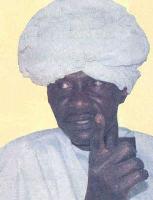Sudan releases Darfur war crime suspect wanted by ICC
By: Wasil Ali
October 1, 2007 (KHARTOUM) — The Sudanese government disclosed for the first time that a Darfur war crimes suspect wanted by the International Criminal Court (ICC) was released from detention.

The Sudanese government was believed to have been holding Kushayb in custody since November for what they described as “suspicion of violating Sudanese laws” and that he was under investigation for criminal acts in Darfur.
The judges of the ICC issued their first arrest warrants for suspects accused of war crimes in Sudan’s Darfur region in early May.
The warrants were issued for Ahmed Haroun, state minister for humanitarian affairs, and militia commander Ali Kushayb. Sudan has so far rejected handing over the two suspects.
The warrant for Haroun lists 42 counts including murder, torture and persecution, while the warrant for Kushayb lists 50 counts including murder and intentionally attacking civilians.
Akol reiterated that Sudan is not party to the ICC and as such has no obligation to cooperate with it.
The news of Kushayb’s release is likely to anger ICC officials and human rights groups who allege that he led attacks against civilians. Kushayb has been nicknamed as the “Butcher of Darfur” by Darfur refugees.
“We have eyewitnesses who saw Kushayb on his horse giving instructions in each of the cases. I have eyewitnesses who saw Kushayb involved in the execution of prisoners, the rape of women,” the ICC Chief prosecutor Luis Moreno-Ocampo said in statements earlier this year.
Last month Sudan appointed the second war crime suspect Ahmed Haroun as head of a committee investigating human rights complaints in Darfur, a move criticized by human right groups.
Sudan has not ratified the Rome Statue, but the UN Security Council triggered the provisions under the Statue that enables it to refer situations in non-State parties to the world court if it deems that it is a threat to international peace and security.
(ST)
